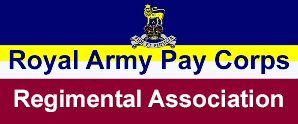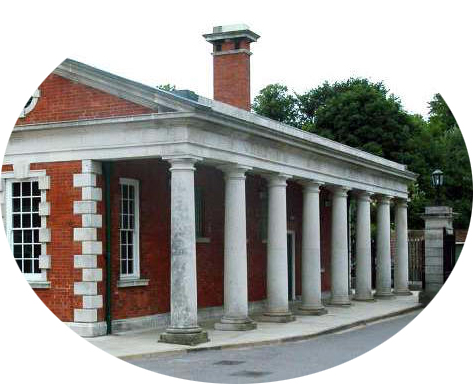
RAPC Virtual Museum

SECOND WORLD WAR
BEF/DUNKIRK
Background
With The BEF in France by Brigadier L G Hinchliffe MBE
To support the British Expeditionary Force (BEF) which was sent to France on the outbreak of the Second World War there was a carefully prepared increment of the Royal Army Pay Corps. The small cadre of officers was hand picked, and its quality can be judged by the fact that it contained two future Paymasters-in-Chief, Lieutenant Colonel C. N. Bednall and Major O. P. J, Rooney. Due to the virtual non-existence of regular reservists the soldiers, except for the holders of a few key posts, were drawn from the Supplementary Reserve. By the standards of the teeth arms they tended to be elderly and they had little training, except in basic clerical skills. For purely military duties, as distinct from Corps employment, there was a contingent of the King's Own Scottish Borderers.
Two days before the outbreak of war on 3rd September 1939, a key party had been called to the Albany Street Barracks, Regents Park, in London. The bulk of the increment arrived in the next two days, and the mobilisation of the Corps’ Field Force was completed by 5th September. Meantime, the Paymaster-in-Chief of the Force, Colonel (later Brigadier) G. A. C. Ormsby-Johnson, had joined the 1st Echelon of the British Expeditionary Force at Aldershot. With him were him were his Staff Officer, Lieutenant Colonel (later Brigadier) A. A. Cockburn and his Chief Clerk, SSM (later Major) F. E. Gear. Major (later Colonel) L. H. M. Mackenzie also joined to fill the somewhat nebulous appointment of Field Cashier, Intelligence Duties.
The Units mobilised comprised a Command Pay Office, a Base Clearing House, a Base Cash Office and seven Field Cash Offices. Four of the latter were earmarked for each of the Divisions of the BEF, while the remaining three were assigned to the main ports of entry: Cherbourg, Brest and Nantes. The brunt of the initial work was expected to fall at Cherbourg, which had been selected as the port for personnel. To add to the difficulty, the need for security prevented any currency being exchanged from Sterling into Francs before embarkation.

Berneville is near to Arras in France and was on the direct route of the German army thrust in May 1940!
The Battle of Arras (1940) took place during the Battle of France of the Second World War. It was an Allied counter-attack against the flank of the German army, near the town of Arras, in north-eastern France. The German forces were pushing north towards the channel coast, to trap the Allied forces that had advanced east into Belgium. The counter-attack at Arras was an Allied attempt to cut through the German armoured spearhead and frustrate the German advance. The Anglo-French attack made early gains and panicked some German units but was repulsed after an advance of up to 10 km (6.2 mi) and forced to withdraw after dark, to avoid encirclement.
Overwhelmed by the German "Blitzkrieg" advance the BEF fell back on Dunkirk to await evacuation.

Evacuation from Dunkirk
